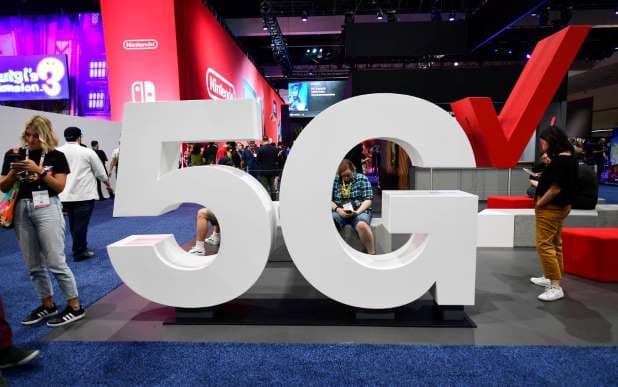
SAN FRANCISCO (AFP) — Verizon will spend $1.9 billion to speed up its deployment of superfast 5G telecom service as a top bidder for US bandwidth that balances range and data speed.
The Federal Communications Commission on Wednesday released results of bidding for leases to use portions off the 3550-3650 MHz bandwidth.
Dish Network — bidding as Wetterhorn Wireless — was in second place with a winning offer of $913 million, according to the FCC.
The remainder of the top five bids were cable companies Comcast, Spectrum and Cox, the agency said.
The US last month announced that 100 megahertz of “contiguous, coast-to-coast mid-band spectrum” long reserved for the military would also be auctioned off to telecommunications firms for use in ultra-speedy 5G networks.
The bandwidth in the range from 3450 and 3550 megahertz was identified for use in 5G networks and can be made available without impairing military or national security capabilities, according to senior administration officials.
The addition will increase to 535 megahertz the amount of mid-band spectrum available for 5G networks in the US, which is behind other countries such as China and South Korea when it comes to deploying the potentially transformative technology.
First generation mobile networks enabled wireless phone calls, and the second generation added texting.
Third-generation mobile networks could handle more data, such as sending pictures and using basic apps, while the current 4G networks can carry bigger loads such as streaming video.
5G networks are touted as promising an exponential leap in the amount and speed of wireless data, enabling advances in self-driving vehicles, virtual reality, connected health and more as sensors and servers communicate instantly.
Mid-bandwidth made available by the FCC strikes a balance between how far signals reach and how fast data travels, with low-bandwidth sacrificing speed for distance and high-bandwidth quick but short-ranged.
Prior to winning in this auction, Verizon had focused on service at the high-frequency end of the spectrum.
© Agence France-Presse
